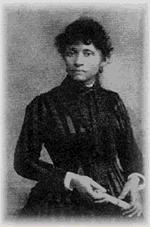

|
Crime and Criminals Our saintly Christians and other goody-goody people throw up their hands in horror, in contemplating the prevalence of crime among the "lower classes." Crimes, or unsociable acts among the "lower classes," are only a reflex of crimes or robberies of the upper or "better classes." We rob our children before they are born. How many thousands, yea millions, of mothers among the working class are there who see a thousand and one articles while in a state of pregnancy which their appetite craves or their heart desires, and yet are unable to gratify it? They walk the streets, gazing at the gorgeous displays, everything to attract the eye and cause the heart to wish for, yet unable, owing to poverty, to gratify such natural longings. What is the consequence? The unborn child is impressed, it feels the same disappointment that the mother feels; it is impressed upon it. We have robbed it before its birth, it enters the world with an unsatisfied, grasping nature. This proclivity grows steadily upon it with its growing years; the desire grows stronger because of poverty, and, finally, the child reaches forth and takes some one else's property. This is theft, it is illegally done; then society for the first time takes an interest in this human being. It comes forward to punish the child, it is now ready to inflict torture upon the victim of its own false, unnatural, inhuman system. How much better, wiser and cheaper it would have been to make conditions natural and social so that the child could have seen the light of Earth under the best conditions possible, instead of—as is often the case—under the worst conditions. How much better this would be than to have to build great, gloomy prisons, superintended by guardsmen, who harden and debase their natures still more. And the case holds good with murders, legal and illegal, or lynchings. The sensational press gives all the gory details of such occurrences in great glaring headlines. They catch the eye of thousands of prospective mothers; they are impressed by the horror and its details, and they in turn impress the unborn child. The child is born, it reaches man's and woman's estate, some adversity crosses its path, and the old prenatal impression rushes upon it and an awful deed is committed! The community is shocked and wonders where such a monster could have come from. Another candidate starts for the prison or the gallows. Thus the long procession is ever wending its way through the ages. The hoary-headed old hag, society, throws up her hands in "holy" horror when one of her children commits an awful deed. She never recognizes the fact that this is only the reflex of her own misdeeds. Crime is simply a social disease. When society has grown wise enough to supplant the prison with the schoolhouse, the teacher for the hangman and kind treatment for punishment and substituting justice and kindness for brutality, we will hear very little more about "crime and criminals." |